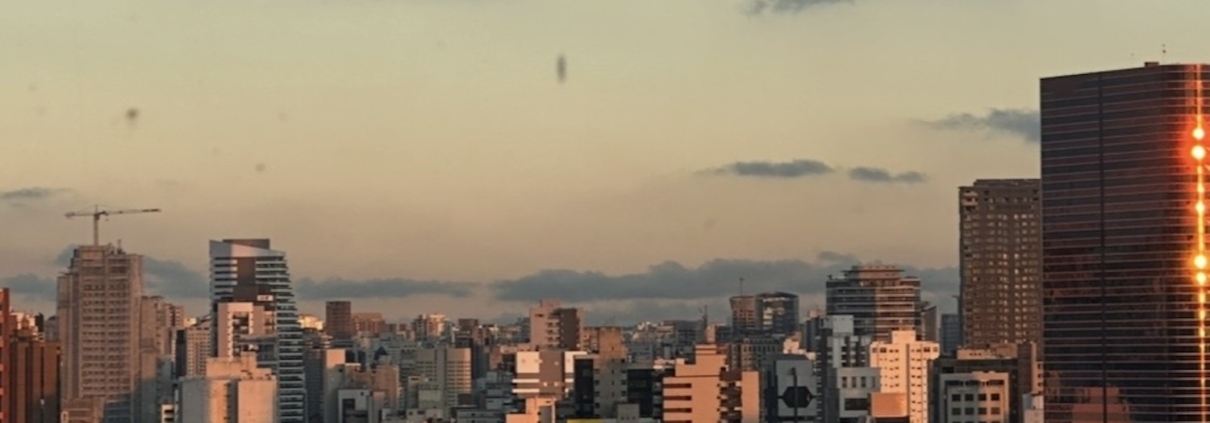Data, Diaspora, and Urban Equity: A Planning Student in Brazil
By Shaylyn Becton
I thought I was going to São Paulo, Brazil, to analyze inequality through datasets and spatial visualizations, and connect the Black diaspora. I left with sharper coding skills and a deeper heart. I learned quickly that Black communities in the Americas both echo and diverge from each other. It is so important liberation sees the unique geographies of each place in order to be fully granted.
Instituto DACOR (Dados Contra O Racismo), or Data Against Racism in English, is a Brazilian NGO that blends communication, data, and social equity through harnessing data maps to fight against racism in Brazil. Instituto DACOR has been involved with ensuring Lei 10.639/03 is effectively enforced and integrated in the Brazilian educational system. This law makes Afro-Brazilian history and culture an obligatory subject in all private and public middle and high schools in Brazil. For a girl from St. Louis, Missouri, where access and investment are limited, this opportunity to connect to diaspora-led initiatives on a global scale revealed how interconnected fights for justice are.
This fellowship broadened my studies and understanding of urban planning and data analytics. As a graduate student in Urban and Regional Planning, gaining exposure to collaborating with programming developers on visual data mapping is a rare opportunity. Working with the data team, I learned how programming developers intersect with urban planning and geography — an eye-opening experience.
I aided the data team with how to visualize raw numbers, statistics, and graphs to the broad audience of the Brazilian public. I collected data from datasets such as INEP, IBGE, and articles. I used ArcGIS to identify performance gaps across the country and how they map onto region-level demographics. This included joining CSVs with shapefiles, utilizing coding joins, and testing different symbologies for varying datasets. For example, one dataset saw how schools in more environmentally tumultuous regions consistently underperformed in comparison to more urban and environmentally consistent regions. The pattern became starkly visible once mapped. Working with a Brazilian team and learning how local knowledge and global data skills intersect was a highlight of this summer fellowship.
I have grown so much navigating work in Portuguese, learning more about data in another language, and adapting to different cultural communication and work styles. We took a lot of “horas do cafézinho (little coffee breaks)” together. Then there was immersing myself in the passion the Afro-Brazilian community has for uplifting each other. I had the opportunity to talk to students at the University of Sorocaba, a small town in the state of São Paulo. Students were introduced to how harnessing and visualizing data can be a tool that can push liberation forward. Through collecting data as a student-led effort, to creating an open data portal. Their eagerness challenged me to think differently about the role of urban planning and mapping in other hemispheres far from ours.
Data should be vested in the community, by the community, rather than absorbed into North American or European institutions. When local data is controlled abroad, a few things happen: 1) data is tied to foreign priorities, 2) data is not relevant for local solutions and becomes unusable, 3) and worst of all, the community loses full power to utilize data toward liberation.
Data analytics is a powerful tool once accessible and meaningful to a wide audience. Data maps are not just technical evaluations; but they are tools that can either reinforce invisibility or illuminate inequality. Instituto DACOR’s work pushes innovation with the latter. My time in Brazil sharpened my skills as a data analyst, but it also deepened my commitment to ensuring mapping is relevant to a unique population.




